Filter by

The Shipping Industry, Ocean Governance and Environmental Law in the Paradigm…
This book examines the corpus of status quo environmental legal regime, geographical issues and redundant “stakeholder claims,” which persist in the Arctic. It examines multifarious theories relating not only to conflicting and opposing interests, but also to parties to whom the shipping industry should be accountable. The unique aspect of this book is the Corporate Social responsibility an…
- Edition
- -
- ISBN/ISSN
- 978-3-319-12541-1
- Collation
- -
- Series Title
- -
- Call Number
- -
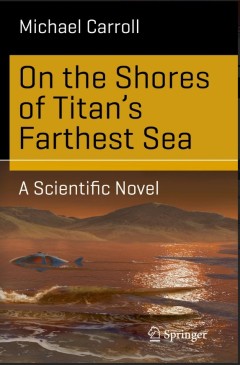
On the Shores of Titan's Farthest Sea
Titan is practically a planet in its own right, with a diameter similar to that of Mercury, methane rainstorms, organic soot and ethane seas. All of the most detailed knowledge on the moon's geology, volcanology, meteorology, marine sciences and chemistry are gathered together here to paint a factually accurate hypothetical future of early human colonization on this strange world. The views fr…
- Edition
- 1
- ISBN/ISSN
- 978-3-319-17758-8
- Collation
- XIII, 268
- Series Title
- Science and Fiction
- Call Number
- -
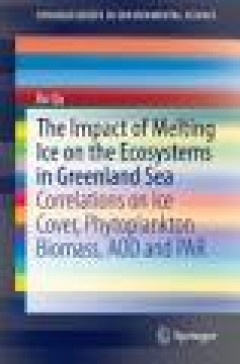
The Impact of Melting Ice on the Ecosystems in Greenland Sea
Arctic marine ecosystems are largely impacted by changes associated with global warming. The sea ice in Greenland Sea plays an important role in regional and global climate system. The book investigate the relationships between phytoplankton biomass, measured using remotely sensed chlorophyll-a (CHL), aerosol optical depth (AOD) and sea-ice cover (ICE) in the Greenland Sea (20°W-10°E, 65-85°…
- Edition
- 1
- ISBN/ISSN
- 978-3-642-54498-9
- Collation
- X, 86, 46 b/w illustrations, 10 illustrations in colour
- Series Title
- SpringerBriefs in Environmental Science
- Call Number
- -
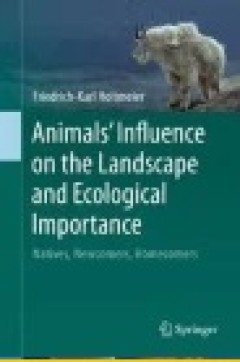
Animals' Influence on the Landscape and Ecological Importance: Natives, Newco…
In its first English-language edition, this book introduces the many-faceted interactions of animal populations with their habitats. From soil fauna, ants and termites to small and large herbivores, burrowing mammals and birds, the author presents a comprehensive analysis of animals and ecosystems that is as broad and varied as all nature. Chapter 2 addresses the functional role of animals in l…
- Edition
- Ed. 1
- ISBN/ISSN
- 978-94-017-9294-3
- Collation
- XXXI, 522
- Series Title
- -
- Call Number
- 363.7 HOL a
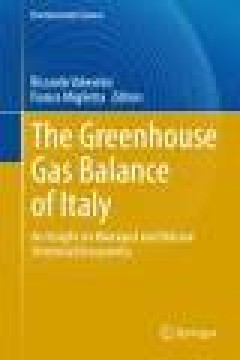
The Greenhouse Gas Balance of Italy
The book addresses in a comprehensive way the full greenhouse gases budget of the Italian landscape, focusing on land use and terrestrial ecosystems. In recent years there has been a growing interest in the role of terrestrial ecosystems with regard to the carbon cycle and only recently a regional approach has been considered for its specificity in terms of new methodologies for observations an…
- Edition
- 1
- ISBN/ISSN
- 978-3-642-32424-6
- Collation
- VIII, 211, 27 b/w illustrations, 30 illustrations in colour
- Series Title
- Environmental Science and Engineering
- Call Number
- -
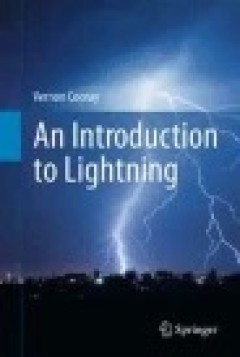
An Introduction to Lightning
This book about lightning summarizes the essence of physics and effects of lightning in a non-technical manner and provides an up-to-date description of the phenomenon of lightning in simple language. Starting with the myths related to lightning, the reader is introduced to the mechanism of lightning flashes and their interactions with humans, human-made systems and Earth’s environment. Most …
- Edition
- Ed. 1
- ISBN/ISSN
- 978-94-017-8938-7
- Collation
- XV, 386
- Series Title
- -
- Call Number
- 551.6 COO i

Nils Petter Gleditsch: Pioneer in the Analysis of War and Peace
This book presents Nils Petter Gleditsch, a staff member of the Peace Research Institute of Oslo (PRIO) since 1964, a former editor of the Journal for Peace Research (1983-2010), a former president of the International Studies Association (2008-2009) and the recipient of several academic awards as a pioneer in the scientific analysis of war and peace. This unique anthology covers major themes i…
- Edition
- 1
- ISBN/ISSN
- 978-3-319-03819-3
- Collation
- XXI, 171
- Series Title
- SpringerBriefs on Pioneers in Science and Practice
- Call Number
- -
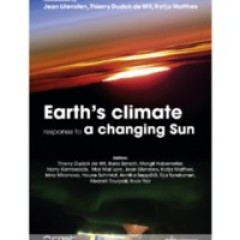
Earth's climate response to a changing Sun
The Earth’s atmosphere, the thin envelope of air that surrounds our planet, consists of a mixture of gases, extending from the surface of the Earth to the edge of space and tied to the Earth mainly by its gravitational force, and partly by the magnetic field at high altitude. It comprises mainly molecular nitrogen (78% in mass) and molecular oxygen (21%), with the other 1% composed of trace …
- Edition
- -
- ISBN/ISSN
- -
- Collation
- -
- Series Title
- -
- Call Number
- 551 MAT e
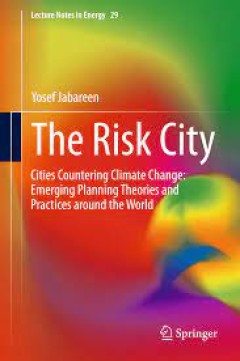
The Risk City Cities Countering Climate Change: Emerging Planning Theories a…
Contemporary cities face phenomenal risks, and they face particularly high levels of mounting social and environmental risks, including social polarization, urban conflicts, riots, terror, and climate change threats. This book suggests that climate change and its resulting uncertainties challenge the concepts, procedures, and scope of conventional approaches to planning, creating a need to reth…
- Edition
- -
- ISBN/ISSN
- 978-94-017-9768-9
- Collation
- -
- Series Title
- -
- Call Number
- -
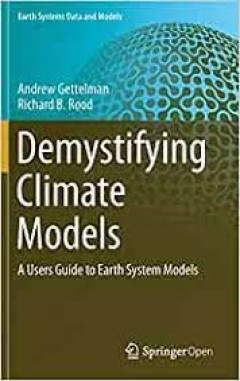
Demystifying Climate Models : A Users Guide to Earth System Models
The book series Earth Systems Data and Models publishes state-of-the-art research and technologies aimed at understanding processes and interactions in the earth system. A special emphasis is given to theory, methods, and tools used in earth, planetary and environmental sciences for: modeling, observation and analysis; data generation, assimilation and visualization; forecasting and simulation;…
- Edition
- -
- ISBN/ISSN
- 9783662489574
- Collation
- XVII, 274 halaman
- Series Title
- Earth Systems Data and Models
- Call Number
- 551 GET d
 Computer Science, Information & General Works
Computer Science, Information & General Works  Philosophy & Psychology
Philosophy & Psychology  Religion
Religion  Social Sciences
Social Sciences  Language
Language  Pure Science
Pure Science  Applied Sciences
Applied Sciences  Art & Recreation
Art & Recreation  Literature
Literature  History & Geography
History & Geography